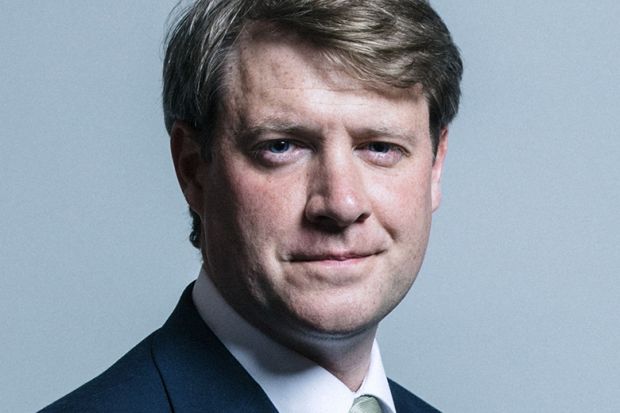Conservative plans to double UK public spending on research and development in the next five years would include an £800 million budget for the proposed Advanced Research Projects Agency, the science minister has said.
Tory leader Boris Johnson announced the plan to increase R&D spending to £18 billion over the course of the next parliament in a speech on 13 December, in his first major policy address of the general election campaign.
Writing on Twitter, science minister Chris Skidmore said that this commitment meant that public expenditure on research and development would rise above the average across Organisation for Economic Cooperation and Development countries. This would be a major step towards the government’s target of increasing combined public and private investment in R&D to the OECD average of 2.4 per cent.
However, the commitment would leave more to be done to hit the longer-term target of increasing investment to 3 per cent, and Mr Johnson’s speech failed to address a key priority for many researchers – continued participation in the European Union’s research programmes after Brexit.
Mr Skidmore added that the investment would include £800 million over five years for the UK equivalent of the US’ Defense Advanced Research Projects Agency, plans for which were announced last month.
The minister said the new agency – which will sit outside the main research umbrella body, UK Research and Innovation – would “support blue-skies, high-reward, research and investment in UK leadership in artificial intelligence and data”.
Venki Ramakrishnan, president of the Royal Society, said increased investment in research was “very welcome”, but emphasised that “successful science is not based on money alone”.
“We will also need to maintain full participation in European funding schemes and the collaboration that they promote, rather than trying to replace them,” Professor Ramakrishnan said.
“We will also need to overhaul our immigration system to truly support the international exchange of people and ideas that has always been a bedrock of the success of UK science.”
On 14 November, the Royal Society published the policies it wanted parties to adopt in the general election campaign, including a demand that any researcher “who is given an academic appointment or a position supported by a major public, charity or industry funded research programme; or who is offered a long-term post in a UK university or research institute should be automatically guaranteed entry [to the UK] for themselves and their families”.
Register to continue
Why register?
- Registration is free and only takes a moment
- Once registered, you can read 3 articles a month
- Sign up for our newsletter
Subscribe
Or subscribe for unlimited access to:
- Unlimited access to news, views, insights & reviews
- Digital editions
- Digital access to THE’s university and college rankings analysis
Already registered or a current subscriber? Login








